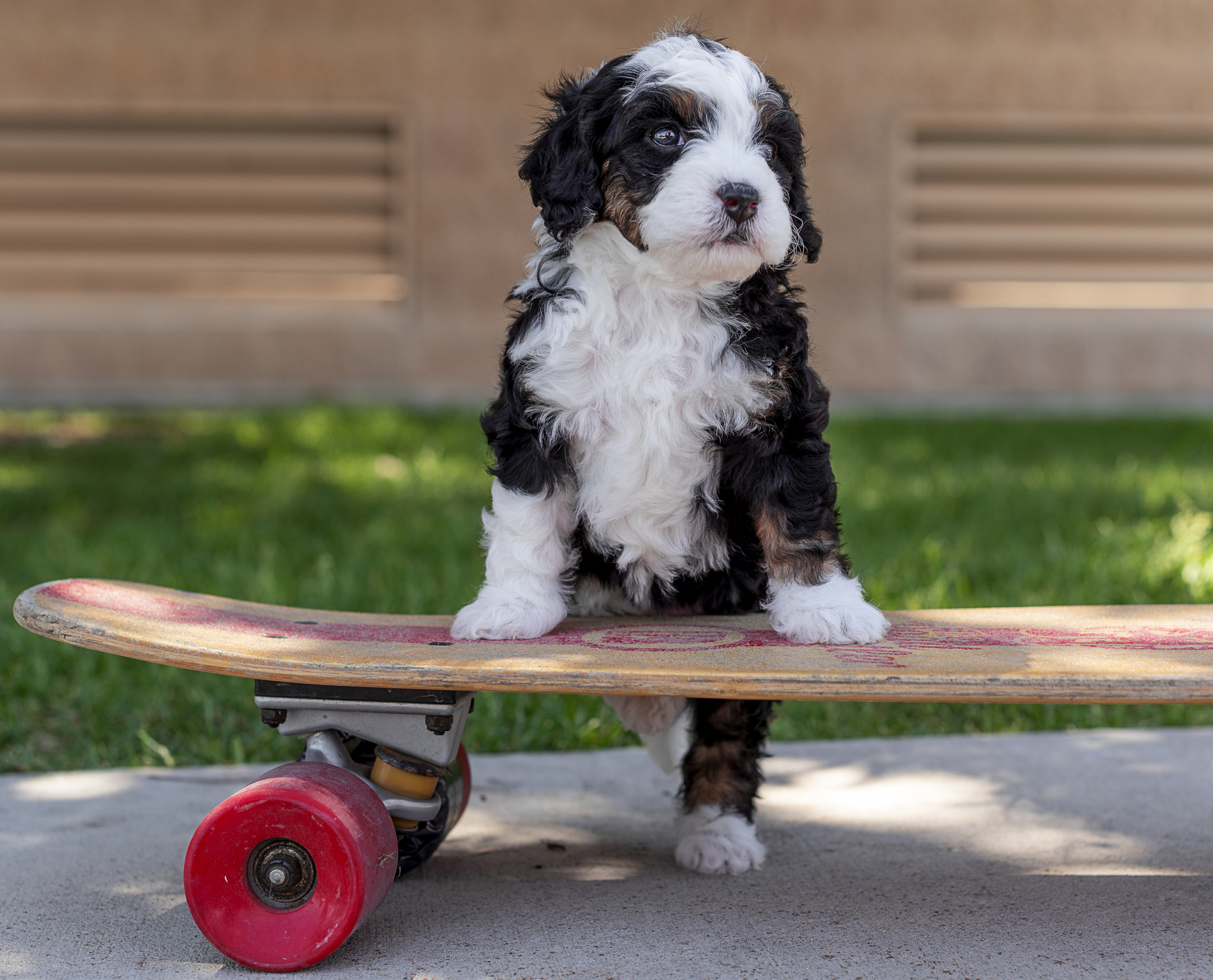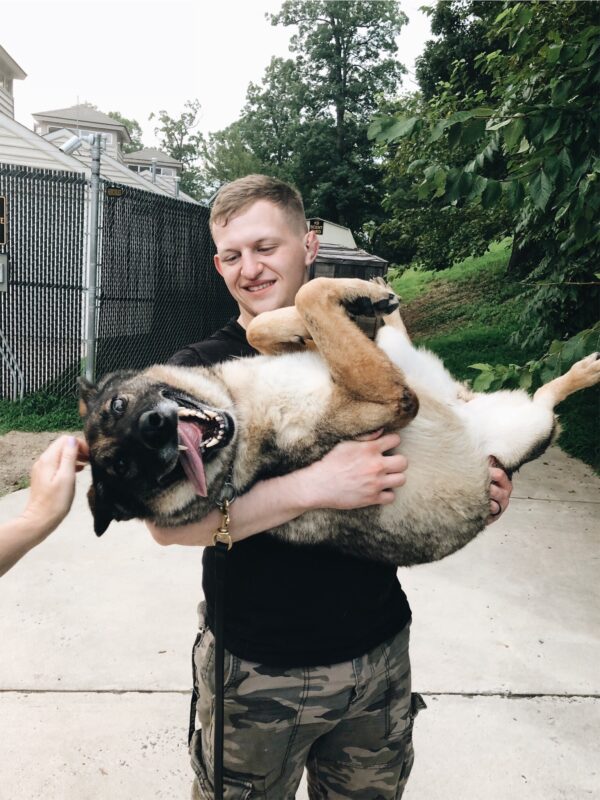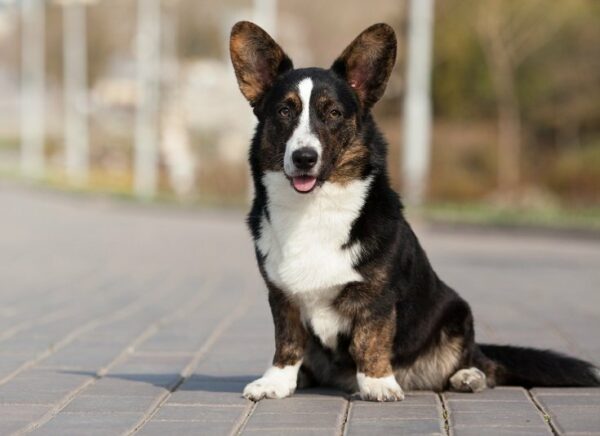Bernedoodles, a popular hybrid dog breed of Bernese Mountain Dogs (aka Berners) and Poodles, are friendly, intelligent, easy-going dogs, who can make great family members. But some Bernedoodles can be stubborn; they’re not for everyone. Bernedoodle temperament, size, and appearance depend on their breeding.
Are Bernedoodles family dogs? About Bernedoodle Temperament
Well-bred Bernedoodles generally are intelligent, social, fun and charming dogs that make great family pets as long as the family is willing to put the time into socializing their Bernedoodle puppy. Bernedoodles were bred to be an easygoing, gentle companion and aren’t a working breed. And, they can adapt to various lifestyles. They are a moderately active dog breed, who can even live in an apartment if given a sufficient amount of exercise, such as a few long walks every day. But, they can be headstrong, especially as puppies. Depending on whether they take after the Bernese Mountain Dog or Poodle parent, they may take on certain characteristics.
Bernedoodle characteristics inherited from Poodles:
- Playfulness
- High intelligence and trainability
- Love of swimming and retrieving
- Friendliness
- High-energy level
- Low-shedding curly coat
- Alert barkers
Bernedoodle characteristics inherited from Bernese Mountain Dogs:
- Stubborn and headstrong
- Aloof with strangers
- Very loyal and bonded to his family
- Gentle
- Great with kids
- Moderate activity level
- Easy-going, laid-back and carefree
- Straight or slightly wavy coat that sheds
How to train a Bernedoodle
From the Berner side, the puppy may be headstrong and wary of strangers, so socialization should begin from puppyhood and continue through the Bernedoodle’s life. Start exposing the Bernedoodle puppy in a positive way to all that he’ll face in everyday life: new people, dogs, sights, sounds and experiences. This will help temper the Berner side of aloofness. And manners training should also begin at 8 weeks old and continue through the dog’s life to help avoid behavioral problems.
If he takes after the Poodle side, the dog needs outlets for his boundless intelligence and energy. Manners training, retrieving and enrichment activities like puzzle toys can help satisfy his needs and prevent boredom.
Bernedoodle training cues
Here are some basic training cues to teach your Bernedoodle:
- Attention (look)
- Loose-leash walking, which is especially important when living with a standard size Bernedoodle because he can even pull or knock someone down if not trained
- Recall and emergency recall, which are crucial if the friendly Poodle side takes over for new adventures
- Sit/down/stay are needed for impulse control and to prevent jumping on people
- Give and drop it are needed for retrieving
- Leave it
- Going to a mat and settling are great, especially for impulse control for the high-drive Poodle side
Interesting facts about the Bernedoodle
In 2003, the first Bernedoodles were deliberately bred by Sherry Rupke, the owner of SwissRidge Kennels in Canada. Dog breeders typically try to cross dogs that have the most appealing characteristics of each breed. Each Bernedoodle is unique and may take on more of the appearance or temperament of one parent breed than the other. Most Bernedoodles have a wavy coat with minimal shedding. Some have a curly coat similar to their Poodle ancestors. They can be pure black, black and white, black and brown or tri-colored (black, brown and white).
There are three sizes of Bernedoodles
- The standard Bernedoodle is a cross between a standard Poodle and a Berner. He ranges between 50 to 90 pounds and 23 to 29 inches at the shoulder.
- The mini Bernedoodle is a cross between the mini Poodle and the Berner. He ranges between 25 to 49 pounds and 18 to 22 inches at the shoulder.
- The tiny Bernedoodle is a cross between a toy Poodle and a mini Bernedoodle and is between 10 to 24 pounds and 12 to 17 inches at the shoulder. The mini and tiny Bernedoodles may have slightly higher energy levels than the standards do.
Bernedoodles can make great family members for people who want an intelligent, easygoing companion. But be aware that your puppy may take after his high-driven, friendly Poodle ancestors or his aloof, headstrong Berner side in appearance and temperament.
For more information, visit the Bernese Mountain Dog Club of America.






